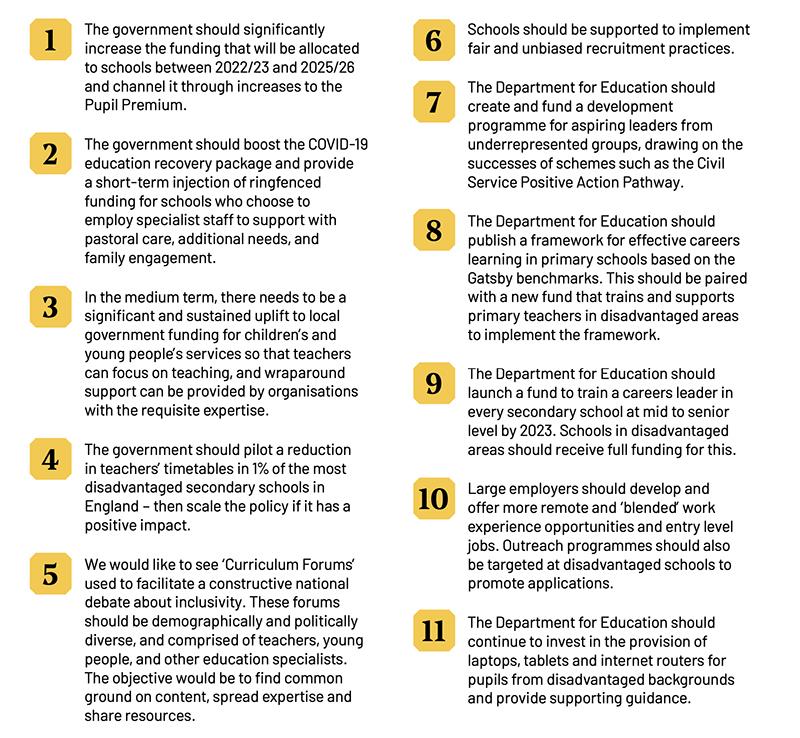These are among 11 policy proposals that have been put forward by education charity Teach First to end educational inequality and ensure “every child has the chance to reach their full potential”.
Entitled A fighting chance for every child, the manifesto points out how in the last decade spending per-pupil has fallen fastest among schools serving the most disadvantaged communities. It calls for a significant increase in funding between 2022/23 and 2025/26, with the Pupil Premium being used to deliver this. The Premium itself should also be extended to cover children on the child protection register.
The manifesto also throws Teach First’s weight behind calls for a Covid education recovery package for schools of between £13bn and £15bn. This was the figure that Sir Kevan Collins, the Department for Education’s former Covid recovery tsar had called for earlier this year.
The DfE’s final plans to spend just £1.4bn led to Sir Kevan’s resignation. The Teach First manifesto states: “Current plans for education catch-up funding amounts to £310 per pupil in England. To put this in context, education catch-up plans for the Netherlands are approximately £2,100 per pupil – seven times larger. We know that every country is unique – but the size of the gap is stark.”
Elsewhere, the manifesto calls for a focus on careers advice and guidance both at primary and secondary level.
It wants to see a framework for effective careers learning at primary school, based on the Gatsby benchmarks, alongside a new fund to train and support primary teachers in disadvantaged areas to implement the framework. At the same time, there should be a fund to train a careers leader in every secondary school at mid to senior level by 2023.
The digital divide is also a priority for Teach First and it calls for continued investment from the DfE in the provision of laptops and internet routers for poorer pupils: “Every household should be able to access the internet, and everyone in education should have access to a working digital device.”
Perhaps the most radical suggestion in the manifesto is for a pilot scheme to test the impact of reducing teachers’ timetables in the most disadvantaged schools. It argues that schools serving the most disadvantaged areas are “staffed, on average, by younger and less experienced teachers.
The manifesto states: “Teachers in these schools face unique, context-specific challenges that make it more challenging for them to teach a typical timetable than if they were teaching the same number of lessons in a school that serves a more affluent area. If these teachers taught fewer lessons per week, they would have more time to spend on planning and professional development, which could in turn lead to improved teacher wellbeing and teacher retention.”
The manifesto also calls for a focus on curriculum diversity and inclusion via a series a Curriculum Forums comprising teachers, young people and other specialists. The manifesto states: “We think what is needed is a constructive national debate about diversity, inclusivity, and the curriculum. A series of ‘Curriculum Forums’ could be used to bridge the divide.”

Build Back Better: Teach First's manifesto – A fighting chance for every child – contains 11 policy proposals ranging from funding to careers advice and diversity. Download the full document via www.teachfirst.org.uk/manifesto
